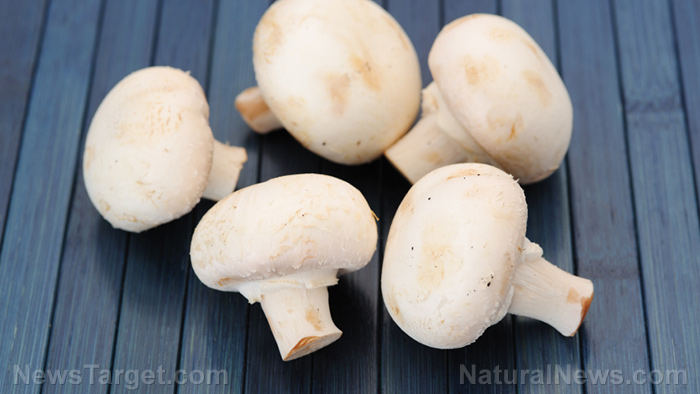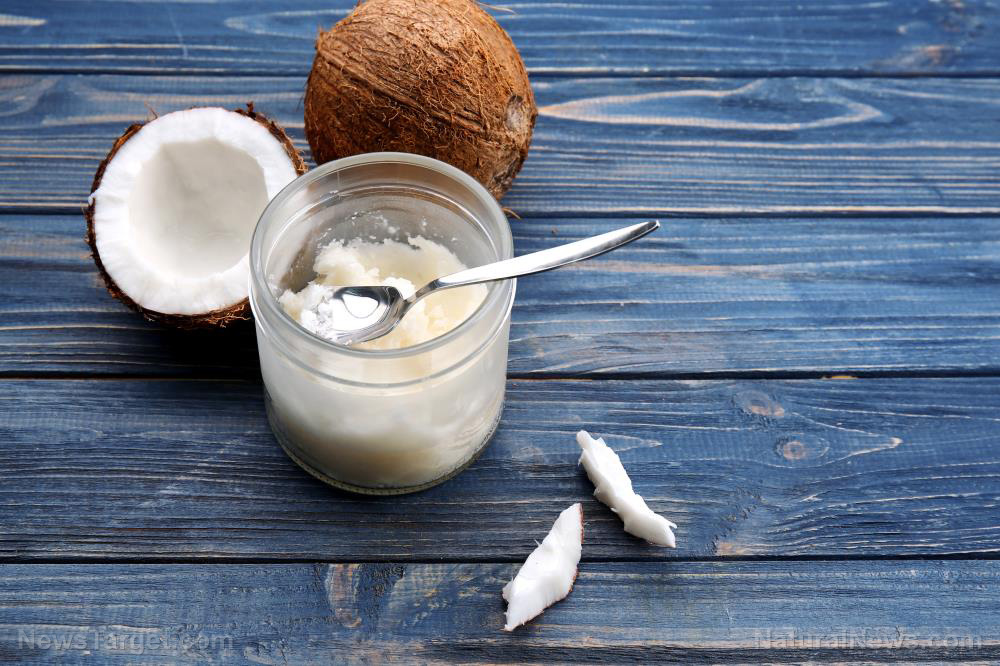Eating organic apples offers health benefits for your gut microbiome, say researchers
07/17/2020 / By Divina Ramirez

Recent studies affirm that gut health is far more complex than scientists thought in the past. From better immune health to a reduced risk of cancer, the state of one’s gut affects more than just digestion.
Nutritionists often recommend eating foods rich in fiber and beneficial microorganisms called probiotics for better gut health. But not all foods for gut health are created equal.
For instance, scientists from the Graz University of Technology (TU Graz) in Austria found that just one organic apple contains as much as 100 million bacteria. But unlike pathogenic genera that cause a host of diseases, these bacteria might benefit gut health.
Published in Frontiers in Microbiology, their findings also established that store-bought apples harbored more harmful bacteria and lacked the beneficial ones found in their organic counterparts.
Gut bacteria protect against chronic diseases
The human gut microbiome is comprised of trillions of bacteria. But unlike the harmful ones that cause infections, these intestinal bacteria help maintain gut health and protect the gastrointestinal tract from inflammation and cellular damage.
For instance, common gastrointestinal issues like indigestion and constipation are often the result of not eating enough fiber-rich foods, such as fruits and grains, and foods rich in probiotics, such as pickles, cheese and other fermented foods.
Neglecting to eat fiber and probiotic-rich foods can also result in gut bacteria imbalance. If the gut bacteria is out of balance, this means that there are more pathogenic bacteria than good bacteria in the gut. This can result in food intolerances, bloating, heartburn and more.
Bacteria in the gut are also thought to aid immune function and boost metabolic processes. In addition, recent studies suggest that gut bacteria can help reduce the amount of bad cholesterol in the bloodstream that can clog arteries and heighten the risk of heart disease.
Because of the different integral functions of gut bacteria, it is important to maintain optimal gut health. To this end, nutritionists might recommend regular consumption of fermented foods rich in probiotics, such as Lactobacilli and Bifidobacteria.
Fruits like apples, bananas, blueberries and pears are also prized for their high fiber and probiotic content that, together, promote digestion and help boost gut health. (Related: Probiotics found to mitigate the effects of salt on blood pressure.)
Organic apples are the healthier choice
Using microbial deoxyribonucleic acid (DNA) extraction and gene sequencing technologies, the team of scientists from TU Graz identified the strains of bacteria found in different parts of both organic and conventional (store-bought) Arlet apples, such as the seeds, stem, peel, pulp and calyx.
It appeared that most of the bacteria can be found on the seeds, stem, pulp and calyx. The researchers also estimated that each of the eight apples sampled (four per group) contained an estimated 100 million bacteria.
That being said, the researchers also reported that although both groups of apples harbored the same number of bacteria, the composition of the bacteria differed. Organic apples had a more distinct collection of bacteria.
In particular, organic apples had more Lactobacilli that are normal residents, so to speak, of the gastrointestinal tract. Lactobacilli are also abundant in fermented foods and probiotic supplements.
The organic apple samples’ peel and pulp also contained large amounts of Methylobacterium, a species of bacteria found to possess great potential for biotechnological application.
On the other hand, the researchers identified numerous pathogenic bacteria in the conventional apples, such as Erwinia, Escherichia and Burkholderiales. Bacteria classified under the Erwinia genus are often linked to root rot and cell death in plant tissue.
Escherichia bacteria, on the other hand, are notorious for causing intestinal infections and diarrhea. In addition, the Burkholderiales order of Proteobacteria has also been implicated in human skin infections.
Furthermore, the researchers added that the conventional apples did not contain as much beneficial bacteria as the organic ones. These findings suggest that organic apples can help protect the gut from pathogens better than conventional ones.
In effect, these findings also support organic agriculture that produces healthier, pesticide-free crops. Organic farming practices reduce pollution, inhibit soil erosion and build up organic soil matter better than commercial farming methods.
Organic apples contain about 100 million distinct and beneficial bacteria. Taken together, the findings of this research affirm that organic apples are far more beneficial for the human gut than conventional ones.
Learn more about organic apples and other organic produce at Organics.news.
Sources include:
Tagged Under: alternative medicine, apples, biomedical research, disease treatments, food cures, food is medicine, functional food, future science, gut health, gut microbiome, natural cures, natural ingredients, natural medicine, nutrients, nutrition, organic apples, organics, probiotics
RECENT NEWS & ARTICLES
COPYRIGHT © 2017 ORGANICS NEWS




















